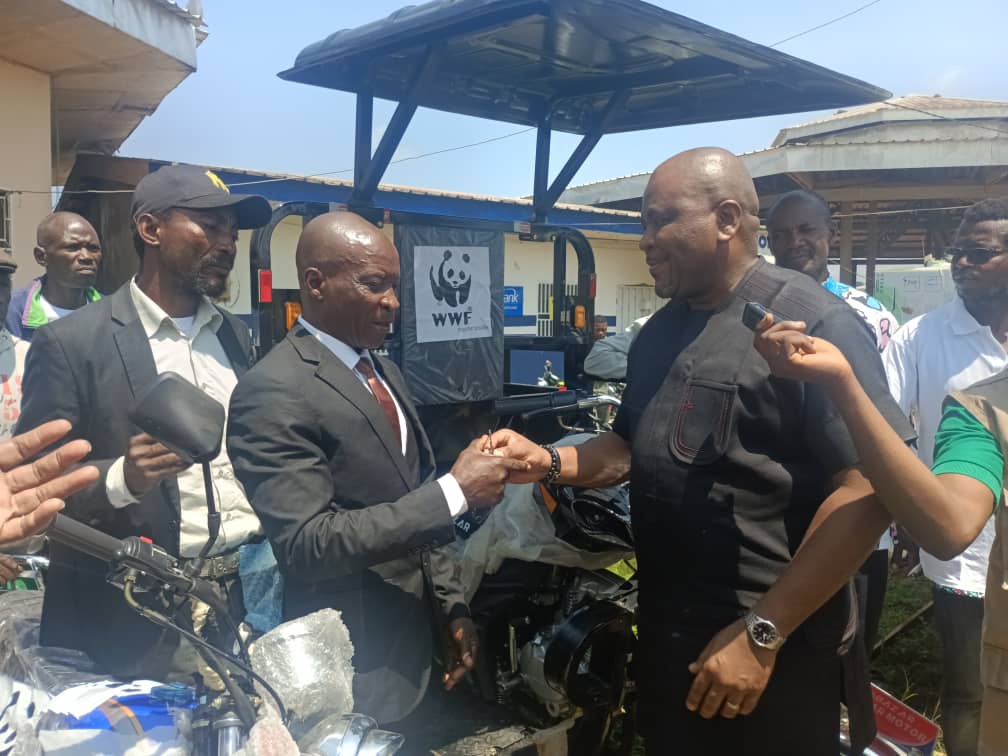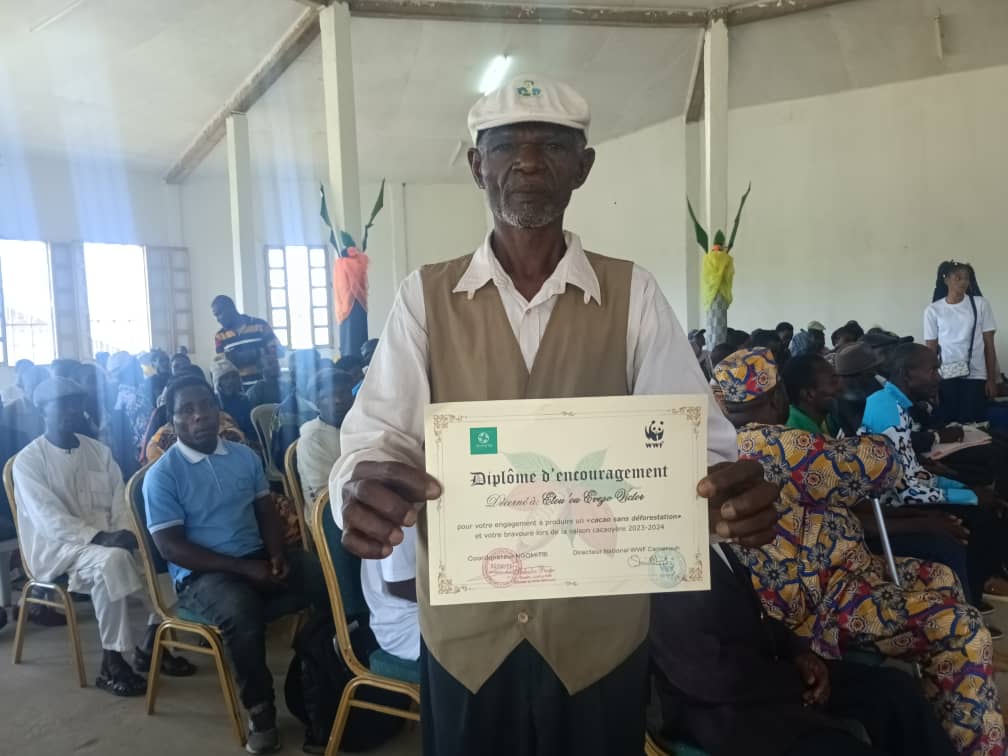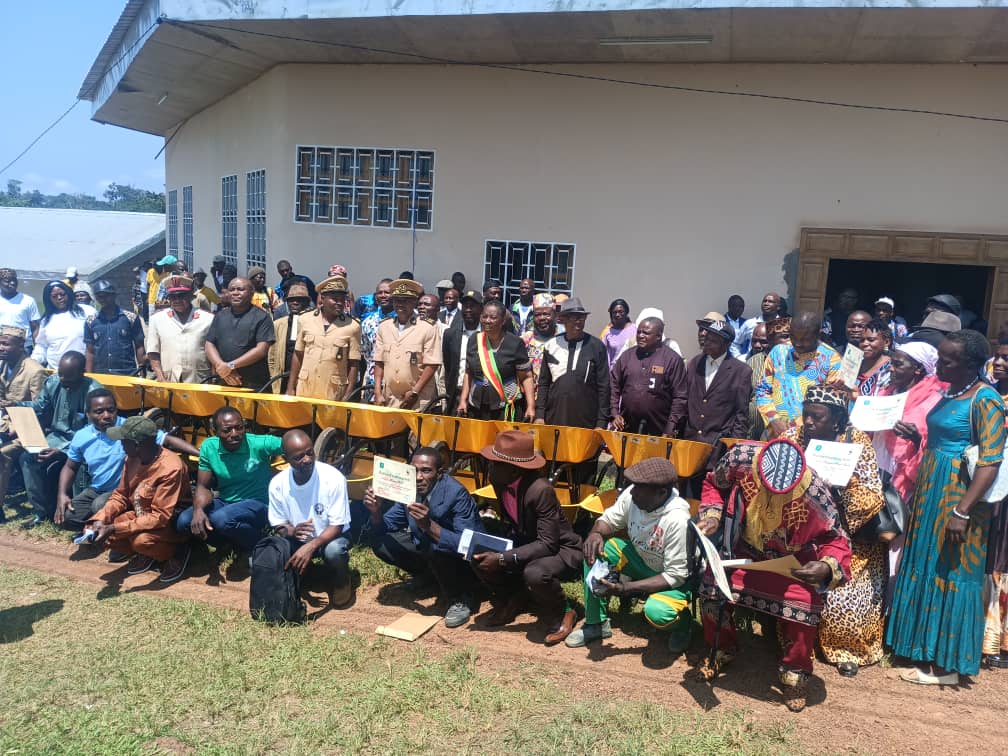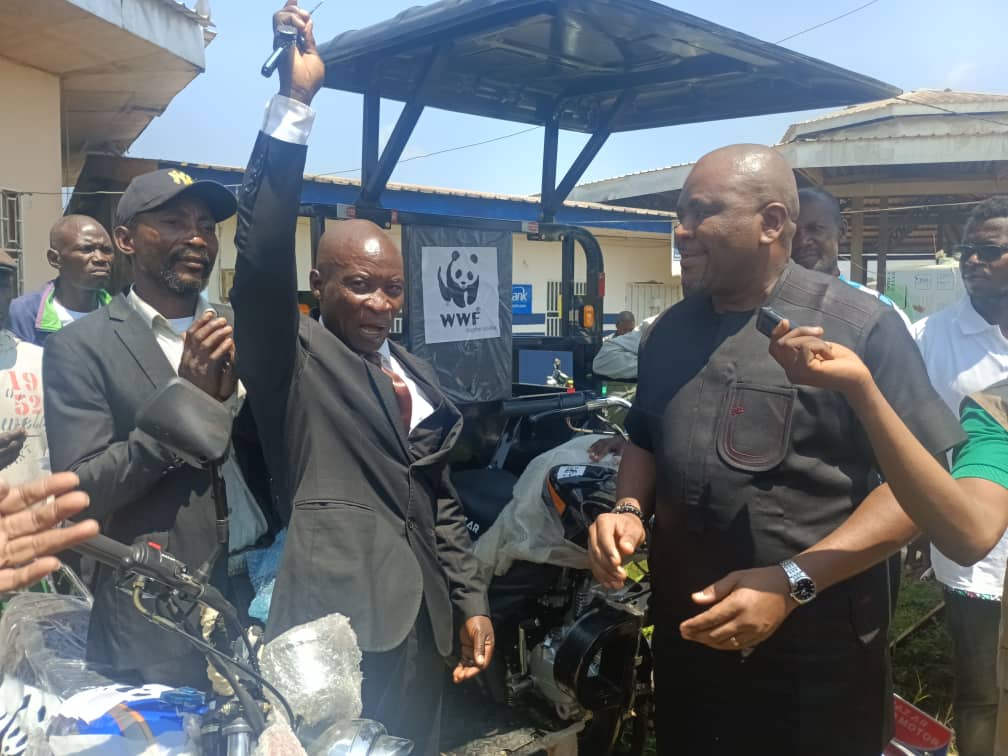Outstanding farmers in Mintom Municipality, South Region of Cameroon, practicing deforestation-free cocoa production have received awards and material from the World Wide Fund for Nature, WWF.
Three cooperatives (SOCOCAM-COOPCA, SCOOPS-PROCAM, and SCOOPS EX-PFNL) and 26 farmers received prizes for implementing the best ecologically friendly agricultural practices that led to quality cocoa and increased yields.
The prizes and the material were handed to the farmers on June 14, during an excellence award ceremony in Mintom, in the presence of administrative authorities and local officials, Divisional Delegates of key sectoral ministries (Forestry and Wildlife, Agriculture), CSO partners, traditional rulers, farmers, and IP & local communities.
The laureates were chosen based on: the quantity and quality of cocoa produced per hectare, implementation of practices that respect the environment, knowledge of harvest and post-harvest, and the ability to experiment with novel methods.
In recognition of their work, WWF Country Director, Alain Bernard Ononino, handed over material and farm inputs to the laureates, including wheelbarrows, machetes, sprayers, tricycles, motorbikes, a one-ton weighing scale, etc., to ease cocoa processing and commercialization.

Since 2021, WWF, through the Green Commodity Landscape Program (GCLP), has been supporting five farmers’ cooperatives engaged in durable cocoa production and non-timber forest products (NTFPs), value chains, namely: SCOOPS PROCAM, SOCOCAM COOPCA, SCOOPS EX-PFLN, SCOOPS BAKA of BEMBA 2, and SCOOPS BAKA of ODOUMOU, grouping some 300 farmers.
For WWF Cameroon Country Director, Alain Ononino, WWF is implementing the GCLP to improve the living conditions of indigenous people and local communities, while preserving the biodiversity around the Dja Biosphere Reserve.
“For instance, thanks to WWF support, the cocoa production of the young cooperative (SOCOCAM COOPCA) has moved from 21 tons in 2021 to 52 tons in 2024. In Mintom, WWF is supporting five cooperatives,” he said.

A study conducted by WWF in 2022 reveals that agriculture is one of the two main drivers of deforestation in Cameroon. Given Cameroon’s ambition to boost economic growth through agriculture and extractive industries, this pressure could significantly increase in Cameroon’s forests.
In response to these threats, the Roadmap for Deforestation-Free Cocoa was signed in 2021 by the Cameroonian government, private sector players, CSOs, and local and international NGOs, including the WWF. This framework agreement commits the signatories to work together towards sustainable cocoa production and marketing, the preservation and rehabilitation of forests, and the inclusion of cocoa farming communities.
To enable farmers to regenerate and replace aging cocoa trees, WWF has supported the creation of three nurseries comprising 25,000 cocoa plants in the communities of Ekombité (15000), Esseng (5000), and the Baka village of Assok (5000).
WWF also constructed a post-harvest cocoa processing unit, to enable farmers to process premium cocoa that meets international standards. Farmers have been taught how to produce cocoa under shade, employ natural farm treatment methods that promote high yields, and do not require clearing off the forest to create new farms.
Mbassi Bitongo, one of the laureates, says, “Since I began practicing the lessons from the training offered by WWF, my production has been rising steadily.”


